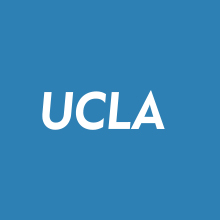What were your favorite philosophy courses at UCLA?
The two required logic courses, Mathematical Physics and the Philosophy of Nature 1200-1600 (taught only once), Plato, Continental Rationalists, History of Philosophy
Are there any philosophical issues, readings, or topics that have stayed with you since graduation?
Yes, I have a special ongoing interest in the history and philosophy of science. Recently I read a book entitled “The Lagoon-How Aristotle Invented Science.” And I am currently studying carefully a series of lectures on the philosophy of science by Jeff Kasser, produced by the The Teaching Company.
Have you read any philosophy recently that you would recommend?
I recommend “The Lagoon” mentioned above. The author, Armand Marie Leroi, does an excellent job of relating Aristotle’s observations and speculations about sea creatures to his general philosophical properties.
What was your first job or endeavor after UCLA?
Within a year of earning my AB I was teaching full time mathematics. To do this, I needed to take several mathematics courses (I had taken only one as an undergraduate). Fortunately, a Dean in the Mathematics Department recognized the value of my training in logic and allowed me to take upper division mathematics courses without the pre-requisite lower division courses.
What lessons or skills from philosophy do you use in your career?
I recently retired from full time teaching of mathematics primarily to secondary students. Two aspects of my training in philosophy had deep influence on my teaching. First, when I did mathematics with students I consistently tried to use the clearest possible language. The language in typical secondary mathematics texts is quite sloppy and ambiguous. I was fortunate to have the opportunity to write my own texts in which I tried to correct this major fault. I strongly believe that making mathematical ideas clear to students makes the subject much more accessible and appealing.
Second, I never forgot the influence of reading Plato’s Meno. I always taught by asking questions, not giving lectures. My idea was to bring to conscious light key notions so that students can discover the connections that give rise to understanding. I try to allow students to be their own architects of grand ideas so they get from doing that the pleasure that comes to us when we construct something useful on our own.
I am about to share my many years of work in creating mathematical pathways with students with the staff of the new Geffen Academy.
Do you have advice for current students or recent graduates about how to take advantage of and continue their philosophical education?
A background in philosophy can enhance your ability to work in many fields. Certain roles as an educator allows this. Of course there obvious other choices such as a legal career.


